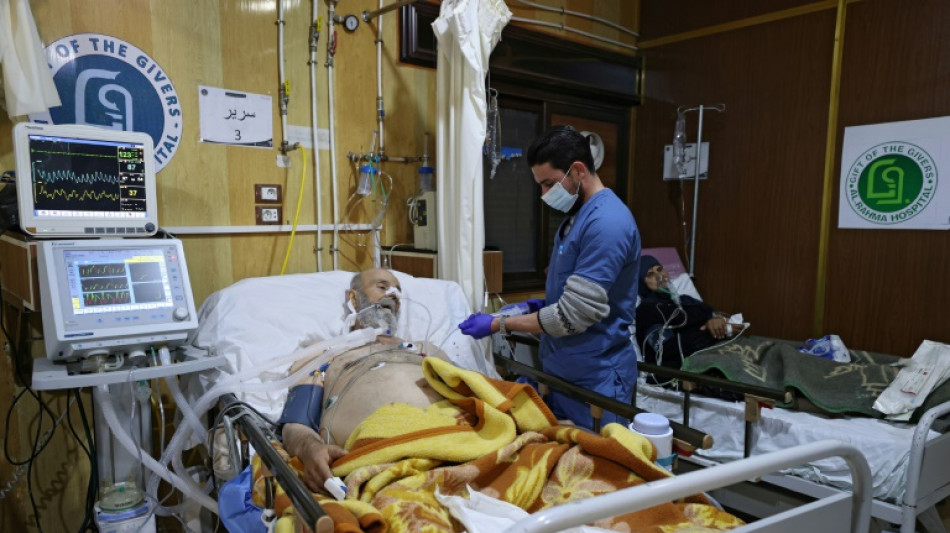
-
 Google must open Android to rival app stores: US court
Google must open Android to rival app stores: US court
-
Amazon profits surge 35% as AI investments drive growth

-
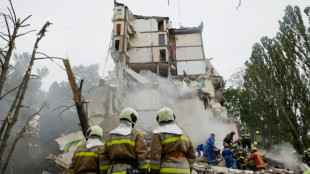 Zelensky urges allies to seek 'regime change' in Russia
Zelensky urges allies to seek 'regime change' in Russia
-
Trump envoy to inspect Gaza aid as pressure mounts on Israel
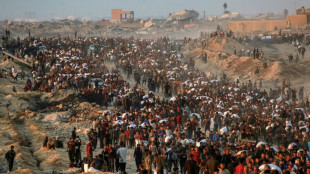
-
 US theater and opera legend Robert Wilson dead at 83
US theater and opera legend Robert Wilson dead at 83
-
EA shooter 'Battlefield 6' to appear in October

-
 Heavyweight shooter 'Battlefield 6' to appear in October
Heavyweight shooter 'Battlefield 6' to appear in October
-
Justin Timberlake says he has Lyme disease

-
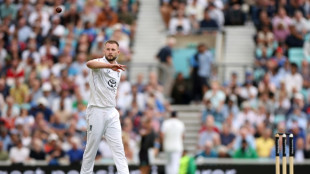 Atkinson and Tongue strike as India struggle in England decider
Atkinson and Tongue strike as India struggle in England decider
-
US theater and opera auteur Bob Wilson dead at 83

-
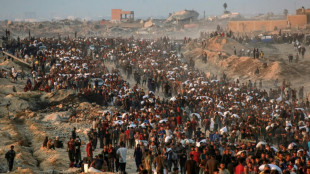 Trump envoy to visit Gaza as pressure mounts on Israel
Trump envoy to visit Gaza as pressure mounts on Israel
-
In Darwin's wake: Two-year global conservation voyage sparks hope

-
 Microsoft valuation surges above $4 trillion as AI lifts stocks
Microsoft valuation surges above $4 trillion as AI lifts stocks
-
Verstappen quells speculation by committing to Red Bull for 2026

-
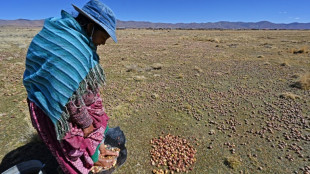 Study reveals potato's secret tomato past
Study reveals potato's secret tomato past
-
Trump's envoy in Israel as Gaza criticism mounts
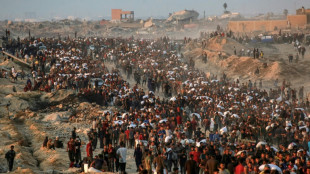
-
 Squiban solos to Tour de France stage win, Le Court maintains lead
Squiban solos to Tour de France stage win, Le Court maintains lead
-
Max Verstappen confirms he is staying at Red Bull next year

-
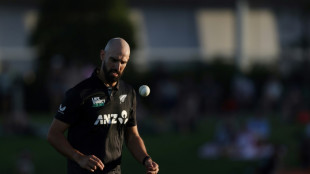 Mitchell keeps New Zealand on top against Zimbabwe
Mitchell keeps New Zealand on top against Zimbabwe
-
Vasseur signs new contract as Ferrari team principal

-
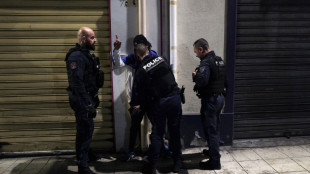 French cities impose curfews for teens to curb crime
French cities impose curfews for teens to curb crime
-
Seals sing 'otherworldly' songs structured like nursery rhymes

-
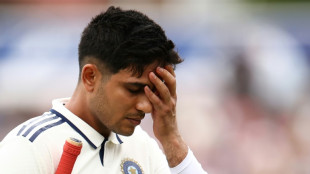 India captain Gill run out in sight of Gavaskar record
India captain Gill run out in sight of Gavaskar record
-
Trump's global trade policy faces test, hours from tariff deadline

-
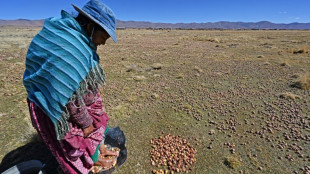 Study reveals potato's secret tomato heritage
Study reveals potato's secret tomato heritage
-
Wirtz said I would 'enjoy' Bayern move, says Diaz

-
 West Ham's Paqueta cleared of betting charges
West Ham's Paqueta cleared of betting charges
-
AI gives stocks a lift, dollar mixed tracking Fed, tariffs

-
 Authorities abandon recovery of German Olympian killed in Pakistan
Authorities abandon recovery of German Olympian killed in Pakistan
-
Talks over France, Lions game 'progressing': Benazzi

-
 Popovici ready to hit the beach after world swim sprint double
Popovici ready to hit the beach after world swim sprint double
-
Magic Marchand adds gold to world record as McIntosh wins again

-
 Sweden jihadist jailed for life over Jordan pilot burned alive
Sweden jihadist jailed for life over Jordan pilot burned alive
-
Zelensky signs bill ensuring anti-graft agencies' 'independence'

-
 Sleepless in Singapore: Marchand wins gold, day after world record
Sleepless in Singapore: Marchand wins gold, day after world record
-
England make early double strike in India series decider

-
 Popovici wins 100m freestyle world gold for sprint double
Popovici wins 100m freestyle world gold for sprint double
-
Marchand wins 200m medley gold, day after world record

-
 Thousands of Afghans scramble for chance to work in Qatar
Thousands of Afghans scramble for chance to work in Qatar
-
Trump's envoy arrives in Israel as Gaza criticism mounts

-
 McIntosh powers to third gold of worlds, 12-year-old Yu fourth
McIntosh powers to third gold of worlds, 12-year-old Yu fourth
-
Hong Kong sees 3.1% growth in second quarter

-
 Stocks, dollar mixed tracking Fed, tariffs, results
Stocks, dollar mixed tracking Fed, tariffs, results
-
World Athletics brings in gene tests for female category eligibility

-
 Trump says tariffs are making US 'great & rich' again
Trump says tariffs are making US 'great & rich' again
-
Pakistan opposition leader given 10 years for Imran Khan protests

-
 India's Bumrah out of Oval finale as England bowl in fifth Test
India's Bumrah out of Oval finale as England bowl in fifth Test
-
Rights groups urge Nepal to reverse Telegram ban

-
 BMW says can weather tariff storm despite profit plunge
BMW says can weather tariff storm despite profit plunge
-
Zelensky urges allies to push for 'regime change' in Russia
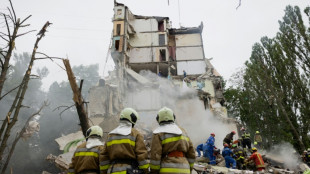
| SCU | 0% | 12.72 | $ | |
| RBGPF | 0.52% | 74.42 | $ | |
| RYCEF | 7.62% | 14.18 | $ | |
| CMSC | 1.09% | 22.85 | $ | |
| BCC | -1.29% | 83.81 | $ | |
| NGG | 0.28% | 70.39 | $ | |
| BCE | -0.86% | 23.33 | $ | |
| CMSD | 0.9% | 23.27 | $ | |
| RIO | 0.47% | 59.77 | $ | |
| SCS | 0% | 10.33 | $ | |
| JRI | 0.15% | 13.13 | $ | |
| RELX | 0.21% | 51.89 | $ | |
| VOD | -2.31% | 10.81 | $ | |
| AZN | -4.79% | 73.09 | $ | |
| BTI | 0.97% | 53.68 | $ | |
| GSK | -4.9% | 37.15 | $ | |
| BP | -0.31% | 32.15 | $ |

Aid cuts threaten hospitals in Syria rebel enclave
The crowded hospital in Darkush in Syria's rebel-held northwest treats around 30,000 patients every month, for free -- but now foreign aid cuts are threatening its future.
Already dwindling funds have caused dire shortages of medicine and equipment in this and other clinics in the Idlib region, the last Syrian enclave to oppose the regime in Damascus.
The United Nations has appealed for urgent help from donor nations whose largesse has been sapped by the Covid pandemic and fatigue with the decade-old Syrian war.
Umm Alaa said she has been a patient for the past eight days in the Darkush hospital's gynaecological ward.
"I don't want the hospital to close," she said. "I can't afford to go anywhere else.
"Medical care here is good. But the problem is that we have to buy the drugs ourselves -- drugs I can't afford."
A rickety wooden door with a glass window leads to the general surgery ward, where patients lie on narrow beds and on stretchers wrapped in plastic.
The hospital has been financially struggling since November after the major donor, having contributed 80 percent of funding, completely halted aid.
The ambulance service, surgery and paediatric departments, the incubators and the laboratory have now stopped working, said hospital director Ahmed Ghandour.
"We need drugs for our patients and supplies for the lab, radiology, surgery as well as material for the care units and paediatric ward," he said.
The medical staff, he added, has been working without pay since the start of the year, and the hospital only has medicines for about another two months.
- Emergency aid appeal -
The UN's World Health Organization (WHO) has launched an emergency aid appeal for more than $250 million to pull Syria's crumbling health sector through 2022.
If Idlib's medical centres close down, a new catastrophe will hit the region already ravaged by a decade of bloody conflictdoctors warn.
Doctor Salem Abdane, who heads Idlib's health authority, told AFP that international donors used to provide "operational support, salaries and medical supplies".
But he said they had stopped giving aid to around 18 hospitals since the end of last year.
Abdane said that the economic impact of the pandemic and fatigue after 10 years of conflict in Syria drove the aid cuts for health care -- a view echoed by the WHO.
"International support is decreasing while needs are increasing," said Mahmoud Daher, the director of the WHO office in the nearby Turkish city of Gaziantep.
- 'People still suffer' -
Daher said some hospitals had already stopped working, without specifying how many.
The UN will soon provide support to some hospitals in the region, but Daher said it was not enough to mitigate the effects of declining aid.
Most of northwest Syria's more than 490 medical institutions rely on aid to function, Daher said, meaning that funding cuts impact "the lives of hundreds of thousands of people".
Last year, the UN and its partners already fell short of raising even half of the $4.2 billion requested for Syria's humanitarian needs.
In rebel-held areas of the northwest, health facilities have also been targeted by airstrikes.
The group Physicians for Human Rights warned last month that "the health needs of the population far exceed the capacity of available facilities and personnel in northern Syria".
"The dynamic security situation and fluctuating donor priorities threaten humanitarian actors' ability to provide lifesaving care and sustainable support."
Daher said "the Syrian people still suffer everywhere in the country," and he told AFP he was making a plea to donors for help on their behalf. "They need your support."
A.Malone--AMWN